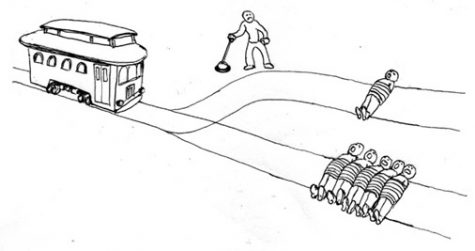TOK: Initial Thoughts
March 27, 2019
It may not seem like it, but semester 2 is already halfway done. This means that the majority of juniors have already experienced the first three months of the class Theory of Knowledge (TOK).
To provide some background information, TOK is a class required for the full IB diploma. And, according to the IB itself, the goal of TOK is to “[provide] an opportunity for students to reflect on the nature of knowledge, and how we claim to know what we know.”

Due to the atypical nature of this course, PantherNation decided to survey a handful of juniors to gather opinions on the class.
The general consensus regarding TOK as a class was generally positive. For example, Jonathan Tostevin (11) calls it “relaxed” and “chill”. While most students agreed on the fact that having a free period instead would be preferable, there is something to be said about the laid back nature of TOK, at least for now.
“I am worried, however,” Jonathan continues, “that TOK will stop being chill next semester”. This sentiment is shared by Mimi Tanglertsampan(11) who is not looking forward to “finishing an essay and presentation during the busiest semester of [her] life.” Moreover, anonymous student B says she wishes “we could frontload some of the presentation work for this semester, so as to reduce future stress.”
While the next semester of TOK seems to be a significant source of anxiety for juniors, they have found some of the lessons so far to be interesting, especially ethics (every student interviewed mentioned ethics as one of the highlights). Sajid Farook (11), for example, says “I enjoy how ethics are integrated into most classes – even though the focus is on a different area of knowledge, there’s always a moral debate to be had about most of the things we learn about”. Anonymous student C also adds that “I found the lessons about the trolley problem really interesting. I never really expected to discuss all of that stuff in school, so it was definitely a pleasant surprise.”
As for improvements, Sajid wishes there was “more choice in what we learned”, adding that “the way we learn about each AOK (Areas of Knowledge – see photo below) is pretty narrow for how abstract they are.”

Another common wish expressed is to have more debates and “opportunities to argue.” Jonathan, for example, states “I think having debates would be fun, and more hands-on, discussion-based activities in general.” This sentiment is further echoed by anonymous student B, who says “I think it would be interesting if we could have some debates on things like postmodernism and aesthetics, which have a lot of overlap with the AOKs and could be very thought-provoking and entertaining.”
So far, students have expressed mixed feelings as to whether TOK is achieving its ultimate goal (50% said yes) of “providing an opportunity for students to reflect on the nature of knowledge, and how we claim to know what we know.”
While there are potential weaknesses in the course as of now, there is no doubt that there are also fun aspects. Sajid perhaps sums it up best, stating, “at first I honestly found it a bit boring. But, after I shifted my mindset and began to go into each class expecting to have an abstract discussion instead of learning content, I started to enjoy it. I also love the lack of assessments and minimal homework, making it a good break from other IB courses,”
Whether you’re a senior who has finished it, a junior who has just started it, an underclassman looking ahead towards it, or a teacher, be sure to express any opinions on TOK in the comment section below.

Vishnu Susheer • Apr 2, 2019 at 10:15 am
As a junior myself, I found this article very insightful. ToK is a class that many will typically consider unimportant but I’d argue that it provides a more holistic and essential view on knowledge itself. Thanks for writing this Craig.